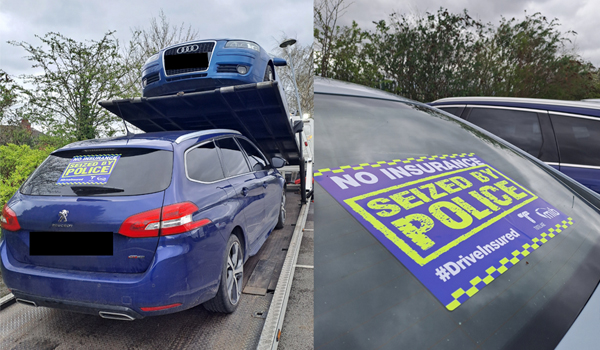More than 100 vehicles seized in crackdown on uninsured drivers
More than 100 uninsured vehicles have been taken off the road in just eight weeks since the launch of a new initiative between West Midlands Police and MIB (Motor Insurers’ Bureau).
The pilot has allowed the force to focus on key hotspots and maximise the impact of its operations.
Data shows that those who drive uninsured are ten times more likely to be convicted of drink-driving, six times more likely to be driving a defective vehicle and four to five times more likely to be involved in a fatal accident.
The partnership with MIB has enabled the “dedicated resourcing” of West Midlands officers across 22 days of operations, named Operation Scalis, to target uninsured driving in key hotspots across the region.
To support West Midlands Police, the first force to pilot Operation Scalis, MIB law enforcement liaison officers are joining a number of operations to provide roadside checking of the Motor Insurance Database (MID) and a direct link to the Police Helpline, speeding up the process of confirming a vehicles insurance status.
Funding for the pilot will come from MIB’s £5 million investment in increasing its work in getting uninsured drivers off the roads sooner.
Sergeant Francis Allen, West Midlands Police Force Traffic Unit, said “Working with MIB has allowed us to focus our efforts precisely on the areas with the biggest prevalence of uninsured driving, maximising the impact of our operations.
“As well as seizing over 100 uninsured vehicles [to date], we have arrested people for stolen vehicles, vehicles transporting stolen property, court warrants and disqualified drivers along with numerous traffic offences as part of the operation.”
Operation Scalis has so far seen 11 days of activity. Officers were out in West Bromwich this week for the 11th day of action, where they seized 14 vehicles and made four arrests for secondary offences including supply of Class A and Class B drugs, immigration offences and dangerous driving following a failure to stop.
The remaining days, spread over April and May, will be used to strategically deploy officers in different areas based on data-driven insights. This allows for continuous improvement as authorities gain a clearer understanding of high-risk locations with a persistent problem of uninsured drivers, the force said.
Throughout the 22 days, officers will utilise a number of tactics to identify uninsured drivers. This includes:
- Operation Tutelage markers, where cars previously passing ANPR cameras have been compared to data on the MID, a list of all active motor insurance policies run by MIB. Vehicles with an Operation Tutelage marker are flagged by the computer inside police cars to officers as a vehicle of interest; and
- Predictive movements, which identifies a 15-minute window in which a known uninsured vehicle is likely to pass a particular location.
“Removing these dangerous vehicles from our road network not only improves overall safety but can also help identify individuals of interest, uncover stolen vehicles, and disrupt wider criminal networks,” said West Midlands Police.
Paul Farley, national law enforcement manager at MIB, said “We know that all priorities are pressing for our police colleagues. However, by supporting forces in designating time to focus on uninsured driving, we know the benefits will be widely felt across all different areas of the force and the community, making roads safer.”
Martin Saunders, head of enforcement at MIB , added: “We are excited to witness progress with Operation Scalis – this is just one more way, in a wider range of initiatives, in which we’re making sure that those flouting the law have nowhere to hide.”
MIB is already in the process of rolling out Operation Scalis to another three police forces across the UK, with these secondary pilots expected to come into action during the second quarter.
Uninsured drivers face a fine of £300 and six penalty points if they’re caught driving a vehicle that they are not insured to drive.
If the case goes to court the driver could be disqualified from driving and face a larger fine.
The police also have the power to seize, and in some cases, destroy the vehicle that’s being driven uninsured.


